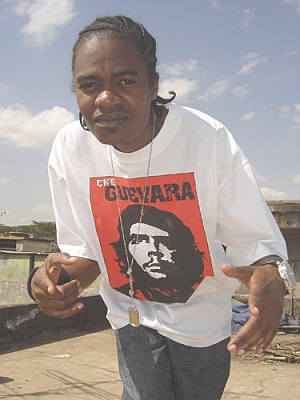Music and Social Change

The post-election violence that occurred after the 2007 Kenyan polls was one of the most horrific scenes that the nation has ever seen. The ages of the key protagonists in the actual violence ranged between 17 and 40. The vulnerability of Kenya’s youth which emanated from unresolved factors such as unemployment; lack of education; the widening rich-poor gap; and whipping up of negative emotions by the media was exposed.
Political influencing was rather easy as it was interpreted that one tribe wanted to retain power and hence hold the key to wealth and success to the detriment of the other tribes. The youth were enraged and took to the streets upon this realization that dawned on them after the poll results appeared differently than their obvious anticipations.
The Kenyan government and the international community are coming up with various ways of pursuing healing and reconciliation to avoid a replay of such an occurrence. I believe local contemporary music, which cuts across tribal lines can play a big role in healing and reconciliation.
Music is a powerful medium for engaging people. He who controls the music of the day rules the land. Entertainers of today dictate trends that are followed by the youth who are the majority. Their influence is far reaching more so than even earlier perceived. The message of reconciliation and healing through music has the ability to affect the youth positively fostering healing and effect national unity in Kenya.
Having discovered the power of music, politicians have spent huge sums of money to have musicians write songs about them or talk about their political ideals. There is a big connection between music and politics. A variety of anti -establishment and pro-establishment expressions find their way in music. Unlike other types of music, political music communicates a specific political message. Understanding the context of the music helps one fully understand the message in the music.
 |
| 'Jua Cali ' Photo courtesy |
Music for social change is characteristic of an organization based in the Korogocho slums in Nairobi. The organisation, Hope Raisers, enables youth to express themselves positively through the arts. Faced with many challenges, the group has been in the forefront to create awareness and mobilize the community members to champion for their rights. Their efforts have enabled them to participate in many social forums such as the World Social forum held in Nairobi in 2007 and other human rights driven projects. Such enterprises should be supported financially and given national platforms to facilitate in the nation’s healing and reconciliation efforts.
Music causes movements and movements in turn result in change. Music echoes social changes and as such it bears the weight of the expression of the people. Music and media have to be incorporated. Our entertainers should be responsible enough to realize that they hold tremendous influence. Relying on politicians alone, most of who have their self interests closer to heart than the worry of a recurring disaster will not suffice. Using what the youths love is a better path. As the music goes, so do youths.
By Alfonse W. Masinde,
MBA (Strategic Management) student, United States International University (USIU) and CFC Stanbic Bank staff.
